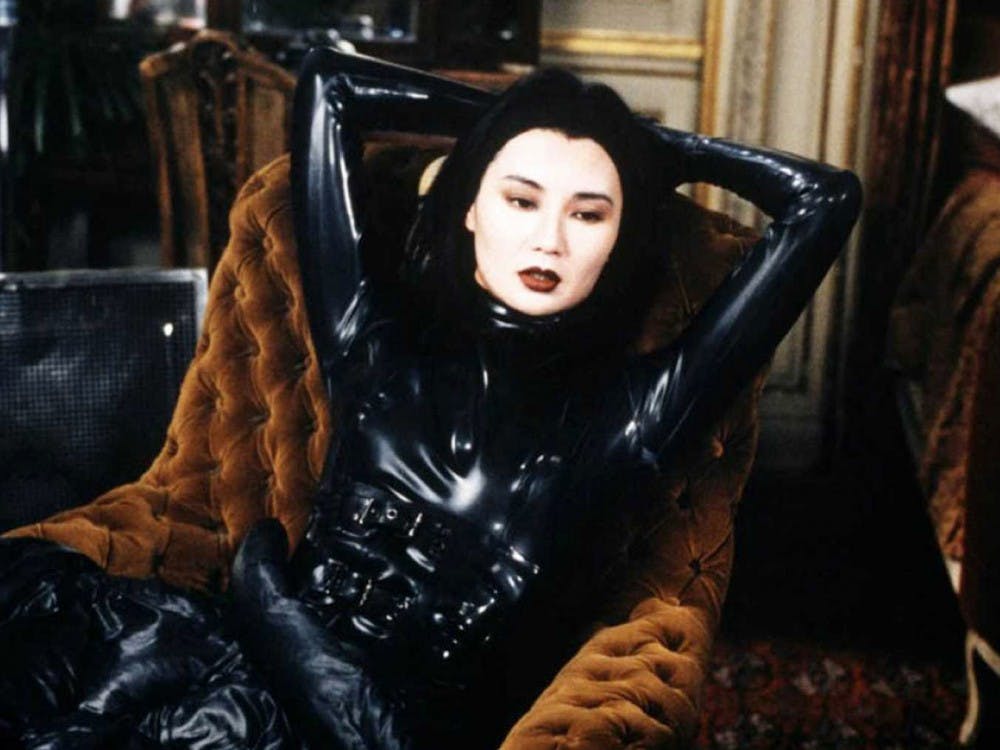Since its founding in 1991 by graduate students, the Arts of the Moving Images’ Screen/Society series has been the center of eclectic film programming on campus. Each semester, co-programming coordinators Hank Okazaki and Jason Sudak curate Screen/Society’s offerings. Free to both the Duke and Durham communities, the program’s selection offers an assortment of films, with an emphasis on international and arthouse films that are not otherwise easily accessible.
“[When selecting films] we like to aim for diversity in terms of region and filmmaker background,” Sudak said. “We try to bring things that we are excited about and the things that are available. We can't get everything, but at the heart of it, we are trying to bring the most exciting films we can here.”
To curate a semester’s worth of screenings, Okazaki and Sudak pay close attention to current happenings in cinema. Film selections often center around new releases, restorations, anniversaries and recent passings. For example, the death of influential French New Wave director Agnès Varda has prompted a number of retrospectives in various cities. Her film “Documenteur” will screen Oct. 3 at the Rubenstein Arts Center.
“We watch a lot of movies and we keep up on film journals and film festivals to find out what's new and coming around,” Sudak said. “We sit in the office and talk about movies a lot, and try to provide a view of the breadth of cinema, especially underseen cinema.”
Many of the films are new releases and have only seen limited screenings in major theatrical cities, like New York or Los Angeles. Although some of the films have unfamiliar cultural or historical backgrounds, Screen/Society invites guest speakers and graduate students to help contextualize the film for audiences in post-film discussions.
“We are trying to show things that are not widely available and are also outside of the mainstream of Hollywood,” Okazaki said. “When we can, we like to invite graduate students or faculty members to introduce films and provide background on cultural or geographic specificities that people might not be so familiar with.”
This iteration of Screen/Society features current films, including Claire Denis’ “High Life,” Gabriel Abrantes and Daniel Schmidt’s “Diamantino,” and Louis Garrel’s “A Faithful Man.” October marks the beginning of the Olivier Assayas retrospective, which will feature both acclaimed films and lesser-known films by the French filmmaker, such as “Irma Vep” and “Clouds of Sils Maria.”
“‘Diamantino’ is a wild film. It is almost a mix of Adam Sandler comedy and Pier Pasolini,” Sudak said. “I am also excited about the [Roberto] Gavaldón films coming from Mexico. They have screened very little in the United States, and that whole period of film between the 30s and 50s is very interesting.”
Each semester, academic departments and community groups are invited to propose screenings. This semester, Screen/Society has collaborated with the Center for Latin American and Caribbean Studies to organize a screening of local filmmaker Rodrigo Dorfman’s documentary “This Taco Truck Kills Fascists.” A partnership with the Nasher Museum of Art will bring “Navajo Talking Picture” on 16mm film and “Mekko,” to complement the Nasher’s latest exhibition, “Art for a New Understanding: Native Voices, 1950s to Now.” Other partnerships include the North Carolina Latin American Film Festival, Duke University Libraries and the Asian/Pacific Studies Institute.
Screen/Society moved to the Rubenstein Arts Center in Spring 2018, and ever since, all screenings have been held in the building’s film theater. The new equipment in the theater, including 16mm and 35mm projectors, has allowed Screen/Society to show many films in their original formats.
“Since moving to the Rubenstein Arts Center and having proper projection equipment we have been able to hold more theatrical screenings,” Okazaki said. “For certain kinds of films, there is a certain experience watching them on celluloid that you can’t have any other way. There is a certain nostalgia as well, an aspect of the experience that makes [the screening] a unique event.”
As both a cinematic and community space, Screen/Society differs from comparable institutions in one crucial way: The screenings are free and open to all. Since programming is funded by academically sponsored programming and grants, Screen/Society can afford to be more audacious with its offerings.
“There's a certain freedom we have since we don't need to consider box office numbers,” Okazaki said. “We don’t want to show things that people don't want to see, but we have the freedom to show things that might not have the ‘brand awareness’ — something a place like the Carolina [Theatre] may be more concerned about. Because of this, we are able to be more daring with our programming, and it's up to us to be consistent with our quality, so that people will trust us and come check it out.”
Although the community engagement has been fairly strong over the past few semesters, drawing crowds for Jean-Luc Godard’s “Le Livre D’Image” and Lee Chang-dong’s “Burning” in previous programs, Sudak and Okazaki hope for continued interest and engagement from Duke students, no matter their academic background.
“I do really appreciate the social space of a film screening and a Screen/Society screening,” Sudak said. There's a lot of energy surrounding [Screen/Society], and it is becoming a space where people associate it with adventurous cultural experiences. We would love for students to come out to our shows.”
More information on Screen/Society's offerings, including a full schedule of screenings, can be found at https://ami.duke.edu/screensociety.
Get The Chronicle straight to your inbox
Sign up for our weekly newsletter. Cancel at any time.

